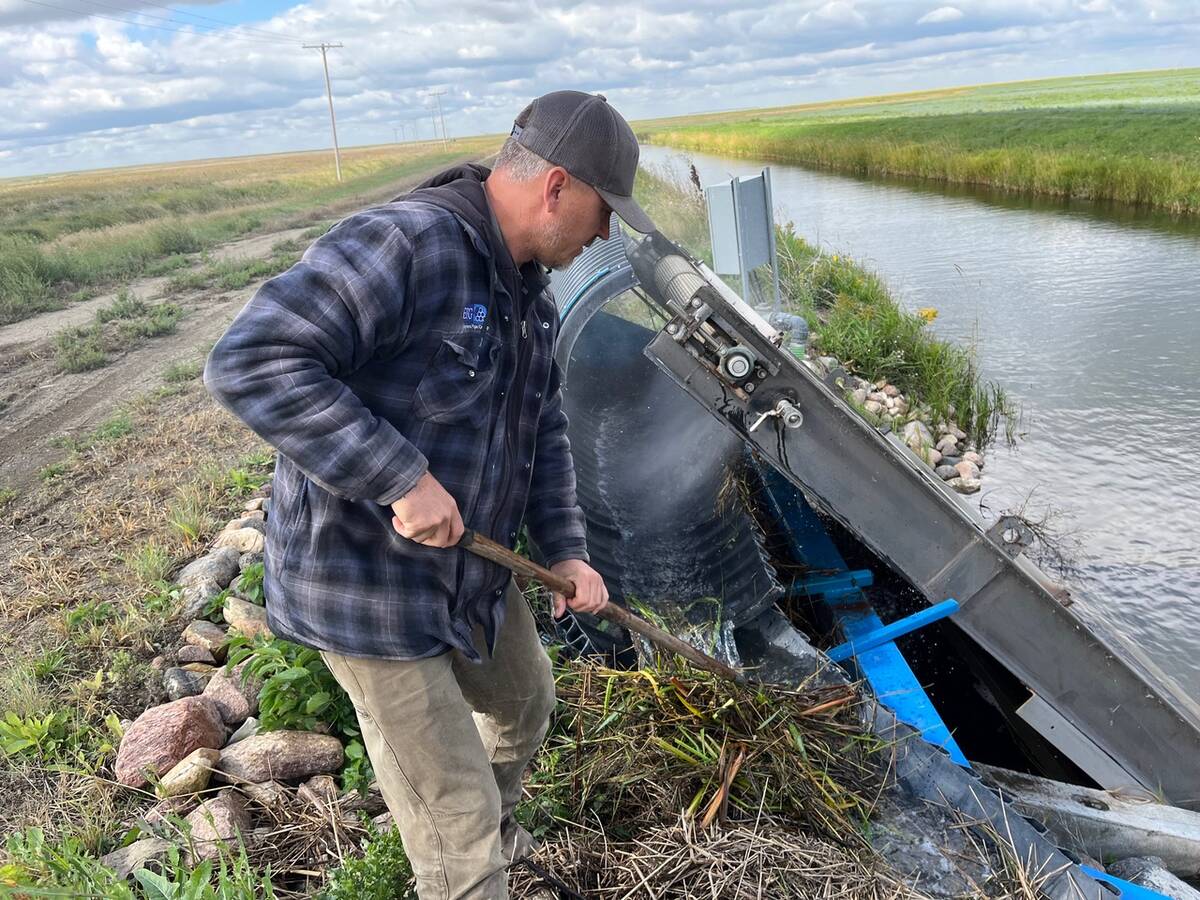A Saskatoon company is helping prairie farmers grow their own crop inputs.
Diesel Services Group Canada has launched a new diesel fuel additive for farm machinery that is wholly derived from locally grown oilseeds.
The company has been providing performance enhancement products and repair services to farmers and other users of diesel-powered equipment more than 20 years.
“We grew (Diesel Services Group) from the farm business and it’s nice that we can go back and use a product that comes from the farm,” said DSG president Percy Hoff.
Read Also

Saskatchewan farmer uses tile drainage to manage water
The integration of both irrigation and tile drainage results in higher yields, water efficiency, improved soils and less nutrient runoff, says one producer.
Small quantities of BioArmor are being manufactured by Saskatoon’s POS Pilot Plant on a toll basis until the company builds its own manufacturing plant.
Farmers use diesel additives to increase the lubricity levels of their fuel, which have been lowered by new environmental regulations that limit sulfur content in diesel.
The product reduces engine wear by lubricating pumps, injectors and engine parts, improving vehicle performance and extending the life of engine oil by reducing soot contamination.
“There are some additives put back by refineries but we find in testing that they are not always consistent in their lubrication value,” said Hoff.
Quality tests conducted by University of Saskatchewan engineering professor Barry Hertz show that a 0.1 percent dosage of BioArmor led to a 27.5 percent increase in lubricity over a base test fuel.
Hoff said the results encouraged the company to switch from marketing a synthetic mineral oil-based additive to the biodiesel-based BioArmor.
POS Pilot Plant can produce 100,000 litres of the additive annually. If a feasibility study determines it will be a profitable venture, DSG intends to build a manufacturing plant capable of producing three million litres of biodiesel annually, a portion of which will be converted into the BioArmor additive.
The plant would be built in rural Saskatchewan over the next 18-24 months. At full capacity it would use an estimated 12,000 tonnes of oilseed a year.
BioArmor is now made from mustard oil, which DSG was able to buy at a reasonable price from local crushers. But the company has also successfully produced it by using green canola, and plans to broaden its tests to include flax and locally grown berries.
Brad Hanmer, president of the Saskatchewan Canola Growers Association, said the endorsement of the biodiesel industry by a reputable diesel engine repair and maintenance company demonstrates the commercial potential of the sector.
“That is a testament to what biodiesel can do to enhance the performance of diesel engines,” said Hanmer, who is also chair of the Biodiesel Association of Canada.
Companies like DSG and Foam Lake, Sask.’s Milligan Bio-Tech Inc. are the first steps toward establishing a mainstream biodiesel industry in the province that can take a sizable tonnage of locally grown canola off the market.
Biodiesel has become the biggest market for rapeseed in Germany as it finds ways to deal with high fuel prices and the European Union’s efforts to reduce carbon dioxide emissions and cut dependence on oil imports.
Hanmer said the same forces will, over time, have a “phenomenal impact” on Canadian farmers as well.
It has the potential to create a positive correlation between fossil fuel and vegetable oil prices, allowing farmers to offset rising energy costs by supplying the raw material for renewable fuels.
“Let’s turn a negative into a positive,” he said.
For that to happen, the provincial government has to put the proper business incentives in place to make Saskatchewan the top investment choice for the next wave of large-scale biodiesel plants, said Hanmer.
“If we lag behind and there is a $40 million plant built in Vancouver, then once again Saskatchewan is going to be left shipping raw product to feed that demand.”
Hoff said DSG’s business plan wouldn’t rely on the provincial government to mandate biodiesel use like it did with ethanol, although he thinks that will probably happen.
Instead it will be based on the premise that in three to five years the province’s diesel retailers will voluntarily use a five percent biodiesel blend in an effort to reduce greenhouse gas emissions.
He anticipates the main challenges in the business plan will be how to lower production costs and how to distribute the fuel.
“Do the farmers come and pick it up? Do you put it in pumps? All those questions remain unanswered.”

















